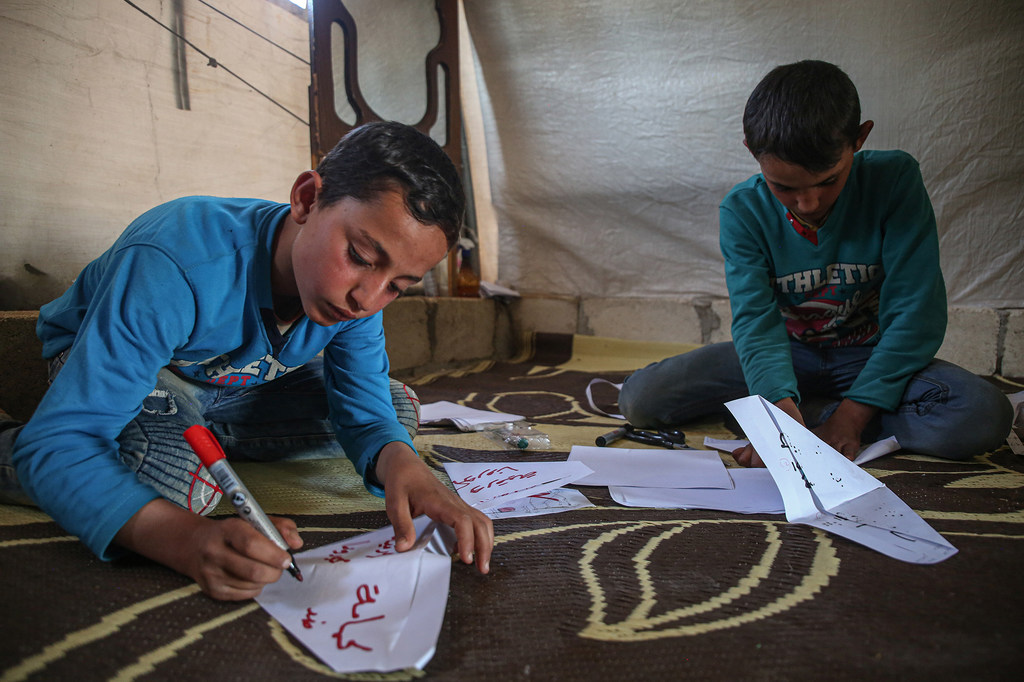Make 2021 a year of possibility and hope, UN chief tells General Assembly
 Following an “annus horribilis” of death, disaster and despair, 2021 must be a year of transformation, Secretary-General António Guterres told the UN’s 193 Member States on Thursday.
Following an “annus horribilis” of death, disaster and despair, 2021 must be a year of transformation, Secretary-General António Guterres told the UN’s 193 Member States on Thursday.
Outlining his priorities for the months ahead, Mr. Guterres emphasized that now is the time to secure the well-being of people, economies, societies and the planet.
From tragedy to transformation
“2020 brought us tragedy and peril. 2021 must be the year to change gear and put the world on track”, he said, speaking from the podium in the General Assembly Hall.
“We need to move from death to health; from disaster to reconstruction; from despair to hope; from business as usual, to transformation.”
The Secretary-General has called for a global reset as the world continues to reel from the COVID-19 pandemic, which has claimed more than two million lives and some 500 million jobs.
He said the crisis is an opportunity for change, stating “We can move from an annus horribilis to make this an ‘annus possibilitatis’ – a year of possibility and hope.”
Vaccine solidarity a top priority
Ensuring equal access to newly developed COVID-19 vaccines is the first step in the transformation, but here the world is falling short.
“Vaccines are reaching a handful of countries quickly, while the poorest countries have none. Science is succeeding — but solidarity is failing”, the UN chief said.
Calling vaccines “the first great moral test before us”, Mr. Guterres urged countries to step up support to the COVAX Facility, the international coalition working to make these treatments available and affordable to all.
“There is only one victor in a world of vaccine haves and vaccine have-nots: the virus itself”, he stressed.
Inclusive and sustainable recovery
However, the world cannot heal if economies are on life support, the Secretary-General continued, underscoring how post-pandemic recovery must be both inclusive and sustainable.
Countries must invest now in sectors such as health, social protection, employment, and education.
Mr. Guterres was concerned about developing nations, which have lost out hugely on remittances and tourism revenue due to the crisis, and he highlighted the need for debt relief and financial support.
“Recovery must also be sustainable — embracing renewable energy, and green and resilient infrastructure,” he added. “Otherwise, we will lock in harmful practices for decades to come.”
A ‘critical year’ for climate action
Making peace with nature is another top priority for 2021, which the Secretary-General described as “a critical year” for climate and biodiversity.
“I call on every city, company and financial institution to adopt concrete roadmaps with clear intermediary milestones to get to carbon neutrality by 2050. Key sectors such as shipping, aviation, industry and agriculture must do the same”, he said.
Mr. Guterres challenged countries to phase out coal power over the next two decades, and to end subsidies for fossil fuels, urging them to “shift the tax burden from income to carbon, from taxpayers to polluters”.
The UN chief again expressed solidarity with developing nations, particularly small island developing states confronting the existential threat of climate change.
“Their territories could disappear within our lifetimes”, he warned. “We must never allow any Member State to be forced to fold its flag because of a problem that is within our power to fix.”
Fight neo-Nazism and racism
With extreme poverty and hunger rising, the pandemic has worsened inequalities and injustices. Human rights and basic freedoms are also under threat, as women, girls, minorities and LGBTI people experience chronic discrimination and violence.
In welcoming new momentum in the global fight for racial justice, the Secretary-General underlined the UN’s commitment to promoting tolerance.
“We must all stand up against the surge of neo-Nazism and white supremacy”, he said.
“The United Nations will never veer from its commitment to fight racism and discrimination. There is no place for racism within our Organization – and we will continue our work to root it out.”

